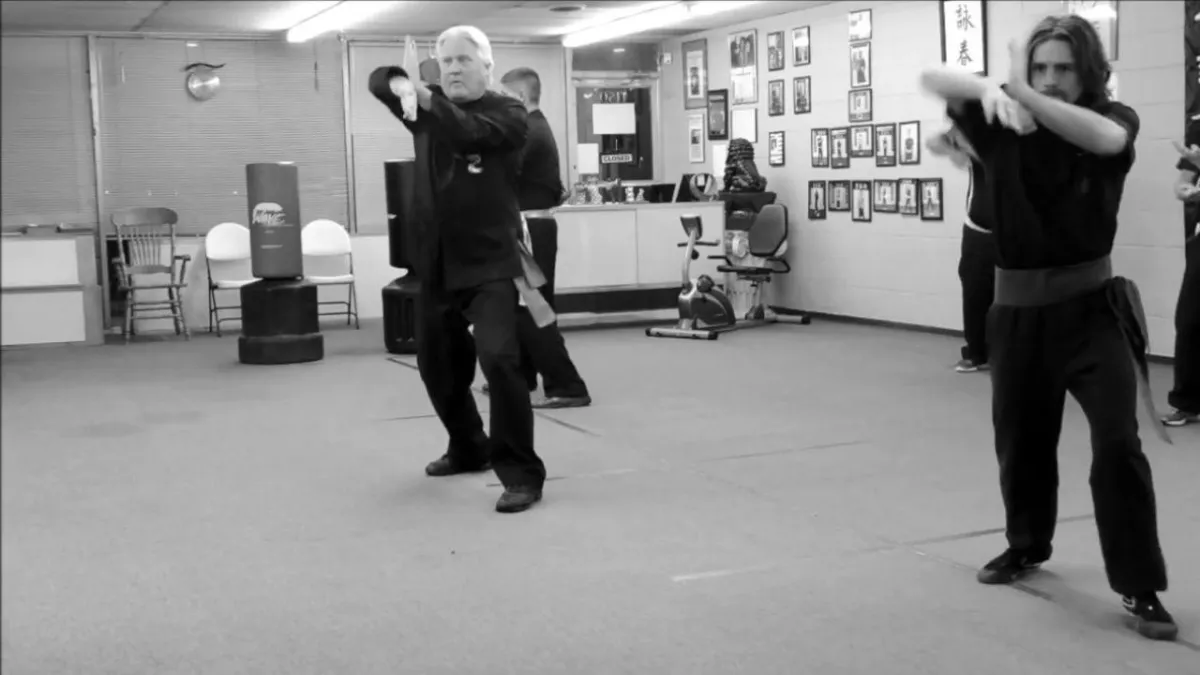

Transform Your Life, One Class at a Time
Claim Your Free Hour & A Half Lesson
Click below to claim your offer. We'll then reach out to answer any questions you may have.
Longmont Wing Chun Academy
At Longmont Wing Chun Academy, we offer a comprehensive range of Traditional Wing Chun Kung Fu Classes our experienced instructors provide personalized guidance and support every step of the way.
Traditional Wing Chun Kung Fu
A fighting art developed by Ng Mui, Buddhist nun and kung fu grandmaster, taught to her adopted daughter Yim Wing Chun, and years later learned by the famous Wing Chun master Yip Man. Yip Man taught the traditional techniques to his closed-door student, Grandmaster William Cheung. This form of Traditional Wing Chun has been passed down to Master Daniel Brazitis.
Traditional Wing Chun is a fighting system that is suited for people of all sizes and ages. You will learn how to protect yourself against an attacker who is physically larger and stronger than yourself.

Our Values
Inclusivity: Welcoming and supportive for all practitioners.
Wellness: Emphasizing overall well-being and mindfulness.
Community: Fostering connections on and off
Integrity: Upholding honesty and transparency in all we do.
Frequently Asked Questions
What types of classes do you offer?
We offer a variety of classes including Beginner and Advanced, Wing Chun, Restorative ISO Chi, and more, suitable for all experience levels.
Do I need any prior experience to join your classes?
No prior experience is necessary. Our classes cater to all levels, from beginners to advanced practitioners.
What should I bring to class?
Wear a comfortable T-shirt and sweat pants to your first class, a water bottle, and wear comfortable clothing. Some advanced classes may require additional gear like, sparing gloves, mouth piece, shin pads. But don't worry about that right now you will have plenty of time and know well in advance when you are ready for the Advanced Wing Chun Kung Fu classes.
How can I access online Wing Chun resources?
You can access our online classes, tutorials, and articles through our website’s online resources section. Members have exclusive access to premium content.
Are your instructors certified?
Yes, all our instructors are certified and experienced, ensuring you receive safe and effective guidance.
Testimonials

Ryan Harper
Absolutely love this place. The Sifu is a amazing teacher and the senior students are very patient and helpful. If you want to learn a traditional kung fu style like Wing Chun this is the place!
Been going for just over a year. And plan to for many years to come. This is a great place for adults and families to learn together.


Elizabeth Sutton
Sifu Dan & Norma are great!! My kids have really enjoyed their classes and my oldest still talks about being able to break the boards 🙂. Thank you for all you guys do.

Classes & Curriculum
Kung Fu & Chi (Qi) Classes
Adult Wing Chun Kung Fu
Adult Advanced & Applied Wing Chun Kung FU
Youth / Family Kung Fu
Basic Self Defense with Kung FU
ISO Chi - Qi Gong & Tai Chi Alternative
Meridian Stretching
... save money with monthly discounts ......
FREE introductory lesson available ...
Wing Chun Kung Fu Curriculum
Traditional Wing Chun teaches three empty handed forms, wooden dummy, sticking hands and two weapons forms.
Siu Lim Tau (Little Epiphanies In The Mind)
Chum Kil (Seeking The Bridge)
Bil Jee (Thrusting Fingers)
Muk Yan Jong (Wooden Dummy)
Chi Sao (Sticking Hands)
Baat Jaam Do (Butterfly Swords)
Luk Dim Boon Kwan(Dragon Pole)
Effective, easy to learn, fighting techniques derived from their practice.
ISO Chi A Qi Gong
& Tai Chi Alternative
Searching for Qi Gong or Tai Chi near you? Experience ISO Chi in Longmont—an isometric method by Grandmaster William Cheung to boost energy, balance, and wellness.
How Longmont Got
Wing Chun Kung Fu
Wing Chun is more than just a martial art; it’s a living heritage passed down through centuries. At Longmont Wing Chun, we’re proud to carry on the tradition of this effective self-defense system in our local community. If you’ve been searching for “Longmont Kung Fu,” “Longmont martial arts,” or “kung fu near me,” our school stands ready to connect you to a lineage that traces back to the founders of Wing Chun.
Get In Touch
Class Hours
Mon 6:00-7:30 pm
Tues: 5:30-6:30 pm
Tues 6:30 - 7:00 pm
Wed 5:00 - 5:45 pm
Wed 6:00 - 7:30 pm
Thurs 5:30 - 6:30 pm
Fri- Closed
Sat 9:00am – 9:45 am
Sat 10:00 - 11:30 pm
Sunday – Closed
Kwoon Location: 1150 Francis St, Longmont, CO 80501
Call (720) 378-1865
Contact Us: https://longmontwingchun.com/contact-us-page

Facebook
Youtube